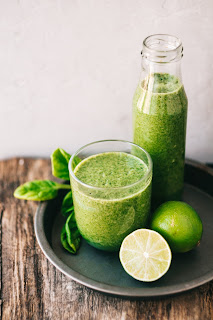You've probably heard the term "superfood" before, but what does it really mean? Is there any scientific evidence to back up the claims that some foods are superior to others in terms of health benefits? And how can you incorporate superfoods into your diet without breaking the bank or falling for marketing hype?
In this blog post, we will answer these questions and more, as we explore the truth about superfoods and how they can help you achieve your health and wellness goals.
What are superfoods?
Superfoods are foods that have a very high nutritional density, meaning that they provide a substantial amount of nutrients and very few calories. They are packed with vitamins, minerals, antioxidants, and other phytochemicals (plant compounds) that have positive effects on your health.
Antioxidants are especially important, as they help neutralize free radicals, which are harmful molecules that can damage your cells and cause chronic diseases such as heart disease, cancer, diabetes, and aging.
There is no official definition or list of superfoods, but some common examples include berries, fish, leafy greens, nuts, olive oil, whole grains, yogurt, and dark chocolate. These foods have been shown to have various health benefits, such as lowering blood pressure, cholesterol, inflammation, and oxidative stress, improving memory, immunity, digestion, and mood, and protecting against cancer and other diseases.
However, superfoods are not magic bullets that can cure all your ailments or make up for a poor diet. They are best consumed as part of a balanced and varied diet that includes plenty of fruits, vegetables, whole grains, lean proteins, healthy fats, and water.
The benefits of superfoods
According to research, superfoods can offer the following benefits for your health and wellness:
- High antioxidant levels in superfoods have a multitude of health benefits. Antioxidants protect your cells from free radical damage and reduce inflammation, which are linked to many chronic diseases. Antioxidants also boost your immune system and help prevent infections. Some examples of antioxidant-rich superfoods are berries, dark chocolate, green tea, turmeric, and garlic.
- Certain superfoods have been shown to reduce cardiovascular risk factors. For example, fish is a good source of omega-3 fatty acids, which help lower blood pressure, triglycerides, and inflammation. Olive oil is rich in monounsaturated fats and polyphenols, which also improve heart health. Nuts contain healthy fats, fiber, minerals, and antioxidants that lower cholesterol and prevent blood clots. Oats are high in soluble fiber that binds to cholesterol and removes it from your body.
- Superfoods can help reduce the risk of cancer. Many superfoods contain phytochemicals that have anti-cancer properties. For instance,Broccoli contains sulforaphane, which inhibits tumor growth and activates detoxifying enzymes. Tomatoes are high in lycopene, which prevents prostate cancer and protects against sun damage. Flaxseeds have lignans that modulate estrogen levels and prevent breast cancer. - Some superfoods can help improve memory and cognitive function. For example, Blueberries have flavonoids that enhance learning and memory by stimulating brain cell growth and communication.
In conclusion, superfoods are not only delicious but also nutritious. They can help prevent and fight various diseases by providing phytochemicals that have anti-cancer, anti-inflammatory, and neuroprotective effects. By incorporating superfoods into your diet, you can boost your health and well-being naturally and enjoyably.



Comments
Post a Comment